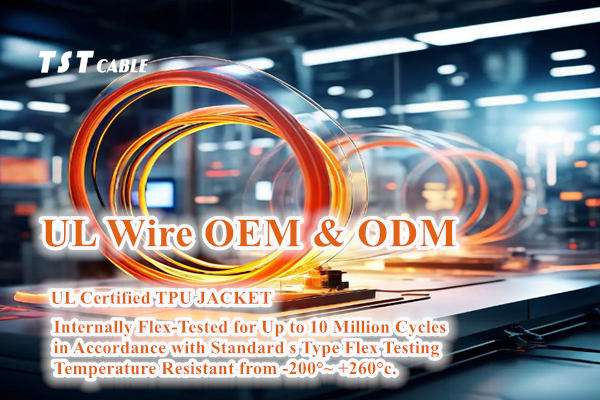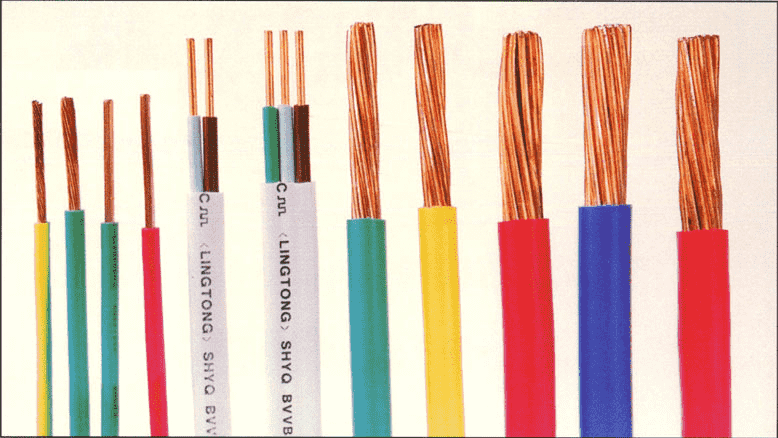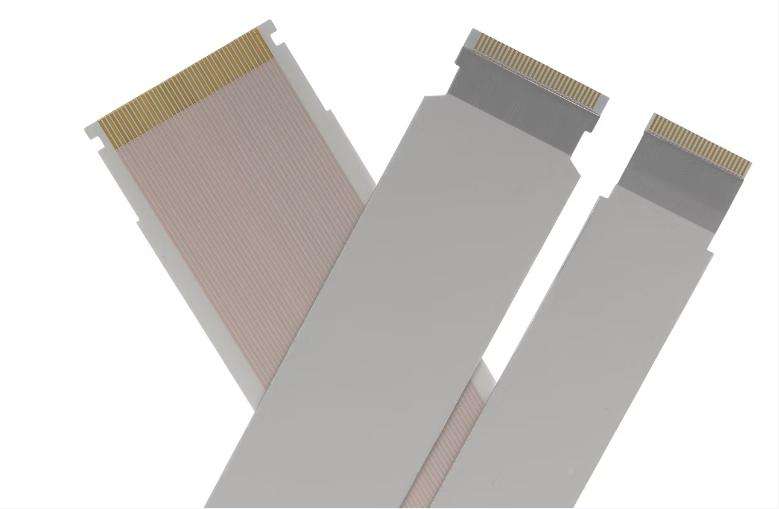When producing cables, cable manufacturers will choose different plastic materials according to the different uses and performance requirements of the cables.
TSTCABLES summarizes the 10 plastic materials commonly used by cable companies, PVC/PE/XLPE/EPR/PTFE/FEP/PFA/TPU/TPE/Silicone cable and their characteristics and applications:

1.PVC cable (polyvinyl chloride cable)
Features
Low cost: PVC is one of the cheapest plastics.
Easy to process: easy to process into various shapes.
Good insulation performance: has good electrical insulation performance.
Determined flame retardancy: contains chlorine element and has a certain flame retardant effect.
Chemical resistance: has good resistance to a variety of chemicals.
Application
Building cable: widely used in building wiring, such as wires and cable sheaths.
Communication cable: used for communication cables such as telephone lines and network lines.
Industrial cable: cable used in industrial equipment.
2. PE cable (polyethylene cable)
Features
High insulation: has very high electrical insulation performance.
Temperature resistance: good temperature resistance, suitable for a wide temperature range.
Flexibility: has good flexibility and is easy to bend.
Chemical stability: has good resistance to a variety of chemicals.
Application
Low voltage cable: used for low voltage power cables, communication cables, etc.
High voltage cable: used for the insulation layer of high voltage power cables.
Submarine cable: used for submarine communications and power cables.
3. XLPE cable (cross-linked polyethylene cable)
Features
High temperature resistance: better temperature resistance than ordinary PE, suitable for high temperature environment.
High mechanical strength: has higher mechanical strength after cross-linking.
High insulation: has very high electrical insulation performance.
Aging resistance: has good aging resistance.
Application
High voltage cable: widely used for the insulation layer of high voltage power cables.
Medium voltage cable: used for the insulation layer of medium voltage power cables.
Submarine cable: used for the insulation layer of submarine cables.
4.EPR cable (ethylene propylene rubber cable)
Features
Temperature resistance: good temperature resistance, suitable for a wide temperature range.
Chemical resistance: good resistance to a variety of chemicals.
Aging resistance: good aging resistance.
Flexibility: good flexibility.
Application
High voltage cable: insulation layer for high voltage power cable.
Medium voltage cable: insulation layer for medium voltage power cable.
Control cable: insulation layer for control cable.
5.PTFE cable (polytetrafluoroethylene cable)
Features
Temperature resistance: extremely high temperature resistance, suitable for extreme temperature environments.
Chemical resistance: good resistance to almost all chemicals.
Low friction coefficient: very low friction coefficient.
Electrical properties: excellent electrical insulation properties.
Application
High temperature cable: cable for high temperature environment.
Aerospace: cable for aerospace.
Medical equipment: cable for medical equipment.
6. FEP Cable (Fluorinated Ethylene Propylene Cable)
Features
Heat resistance: Good temperature resistance, suitable for a wide temperature range.
Chemical resistance: Good resistance to a variety of chemicals.
Electrical properties: Good electrical insulation performance.
Transparency: High transparency.
Application
High temperature cable: Cable used in high temperature environment.
Communication cable: Insulation layer used for communication cable.
Medical equipment: Cable used in medical equipment.
7. PFA Cable (Perfluoroalkoxy Vinyl Ether Cable)
Features
Heat resistance: Good temperature resistance, suitable for a wide temperature range.
Chemical resistance: Good resistance to a variety of chemicals.
Electrical properties: Good electrical insulation performance.
Transparency: High transparency.
Application
High temperature cable: Cable used in high temperature environment.
Precision equipment: Cable used in precision equipment requiring high transparency.
Semiconductor manufacturing: Cable used in semiconductor manufacturing.
8. TPU Cable (Thermoplastic Polyurethane Cable)
Features
High wear resistance: Extremely high wear resistance.
High elasticity: It has good elasticity and is suitable for occasions that require repeated bending.
Chemical resistance: It has good resistance to a variety of chemicals.
Oil resistance: It has good oil resistance.
Application
Industrial cable: It is used for industrial cables that require high wear resistance.
Robot cable: It is used for cables that need to be bent repeatedly, such as robot arms.
Automotive cable: It is used for cables inside cars.
9. TPE cable (thermoplastic elastomer cable)
Features
Flexibility: It has good flexibility.
Abrasion resistance: It has certain wear resistance.
Chemical resistance: It has good resistance to a variety of chemicals.
Environmental protection: It can be recycled and meets environmental protection requirements.
Application
Consumer electronics: It is used for cables in consumer electronic devices.
Household appliances: It is used for cables in household appliances.
Toy cable: It is used for cables in toys.
10. Silicone cable
Features
Temperature resistance: It has extremely high temperature resistance and is suitable for extreme temperature environments.
Flexibility: It has good flexibility.
Biocompatibility: non-toxic, odorless, suitable for occasions that need to come into contact with the human body.
Chemical resistance: good resistance to a variety of chemicals.
Applications
Medical equipment: cables used in medical equipment.
Food processing: cables used in food processing equipment.
Aerospace: cables used in the aerospace field.
Summary
When selecting cable plastic materials, TSTCABLES cable manufacturers will decide based on the specific use and performance requirements of the cable. Each material has its own unique performance characteristics and scope of application. Choosing the right material can ensure the performance and reliability of the cable in a specific application. In practical applications, factors such as cost, processing difficulty, and environmental protection also need to be considered.
Also available in:
English




